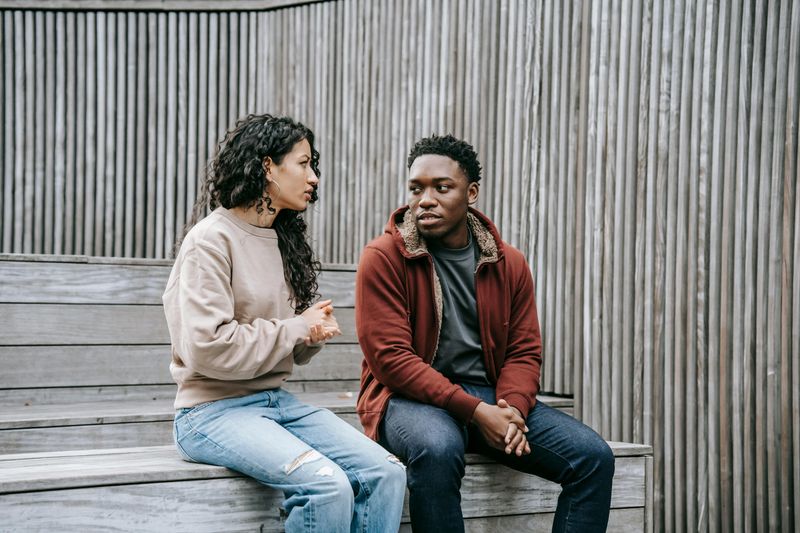Couples Who Last Use These 9 Powerful Communication Skills

Strong relationships don’t just happen by chance – they’re built through effective communication. Happy couples know that how they talk to each other matters just as much as what they say. When partners master certain communication skills, they create a foundation that helps their love grow stronger over time, even when life gets complicated.
1. Pause Before Speaking

Cutting someone off mid-sentence is like saying your thoughts matter more than theirs. Long-lasting couples understand the power of patience during conversations.
When your partner speaks, they give you their thoughts, feelings, and perspectives – treasures worth waiting for. Letting them finish shows respect and helps you understand their complete message.
Practice counting to three in your head before responding. This tiny pause prevents accidental interruptions and gives you time to process what they’ve said, leading to more thoughtful responses.
2. Active Listening Magic

Ever noticed how special you feel when someone gives you their complete attention? Successful couples make this a priority by putting away phones, turning off TVs, and making eye contact during conversations.
Active listening involves more than just hearing words – it means noticing tone, body language, and the emotions behind what’s being said. Your brain can process information much faster than someone can speak, which creates temptation to multitask.
Fight this urge by focusing completely on your partner. This attention sends a powerful message: “You matter to me.”
3. Face-to-Face Connection

Text messages and phone calls certainly have their place, but nothing replaces looking into your partner’s eyes during important conversations. Face-to-face talks allow you to read subtle expressions and body language that digital communication misses.
Research shows that 93% of communication is non-verbal! When couples make time for in-person conversations, they catch nuances that might otherwise cause misunderstandings.
Try creating regular moments for face-to-face connection – over morning coffee, during evening walks, or even scheduled “talk time” for busy couples. These moments build deeper understanding.
4. Radical Honesty

Truth forms the bedrock of lasting relationships. Couples who stand the test of time practice radical honesty – sharing thoughts, feelings, and concerns openly, even when it’s uncomfortable.
This doesn’t mean being brutally blunt or hurtful. Lasting couples balance honesty with kindness, choosing words carefully while still expressing their truth. Small lies might seem harmless, but they chip away at trust over time.
When partners create a safe space where honesty is welcomed rather than punished, they build unshakable trust. Start by being truthful about small things, and the bigger truths become easier to share.
5. The Power of “I” Statements

Notice the difference: “You never help with the dishes” versus “I feel overwhelmed when I handle all the kitchen cleanup alone.” The first approach often triggers defensiveness, while the second invites understanding.
Successful couples frame concerns using “I” statements to express feelings without accusation. This simple language shift transforms potential arguments into productive conversations about needs and feelings.
The formula is simple: “I feel (emotion) when (situation) because (reason).” This approach takes ownership of your feelings while clearly communicating what you need, creating space for solutions rather than blame.
6. Small Talk, Big Impact

Chatting about everyday things might seem trivial compared to deep discussions about feelings or future plans. Yet enduring couples know these casual exchanges are relationship gold.
Sharing little observations, funny moments, or daily victories creates a steady stream of connection. These seemingly minor conversations build a foundation of familiarity and comfort that supports bigger talks when needed.
Make time to ask about each other’s day or share something interesting you noticed or learned. These small exchanges keep you connected to each other’s worlds and prevent the distance that can grow when communication focuses only on logistics or problems.
7. Creating Safe Conversation Zones

Arguments in the bedroom can damage intimacy. Discussions about finances might feel different at your in-laws’ house versus your own kitchen table. Location matters in communication.
Smart couples designate neutral spaces for challenging conversations – perhaps the dining room table or during a walk in the park. These neutral zones help prevent either partner from feeling cornered or disadvantaged.
Some couples even create specific rituals for difficult talks, like sitting side-by-side rather than face-to-face to reduce confrontation. Finding your ideal conversation setting helps ensure both partners feel comfortable enough to speak openly.
8. Touch While Talking

A gentle hand on the arm or sitting close enough for your knees to touch creates physical connection that supports emotional connection. Touch releases oxytocin – the bonding hormone – which helps couples stay calm during difficult conversations.
Research shows that holding hands can actually reduce stress and pain levels. When discussing challenging topics, this physical connection reminds both partners they’re on the same team, even when disagreeing.
Simple gestures like sitting next to each other rather than across, or a reassuring touch during intense moments, can transform the emotional tone of a conversation and prevent escalation into argument.
9. Mirror and Validate

“What I hear you saying is…” – this simple phrase shows your partner you’re truly listening. Strong couples practice reflection by summarizing what they’ve heard before responding.
This technique works magic because it confirms understanding before moving forward. It gives your partner a chance to clarify if needed and shows you value their perspective enough to ensure you’ve got it right.
Validation follows reflection: “I can understand why you’d feel that way.” This doesn’t mean you must agree with everything, just that you recognize their feelings as valid. These twin practices – reflection and validation – help partners feel truly seen and heard.

Comments
Loading…